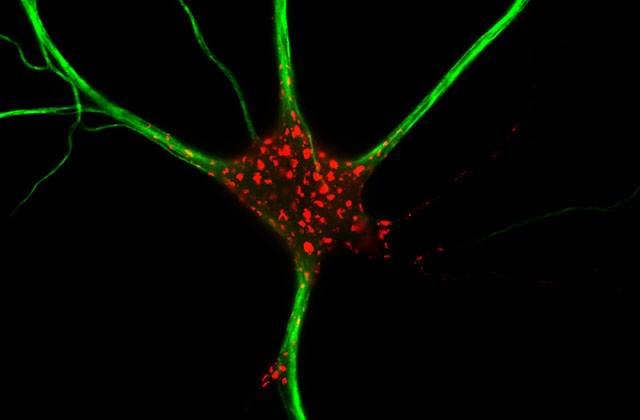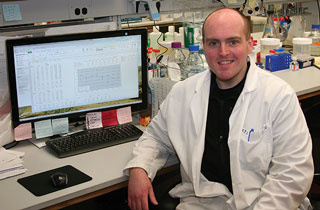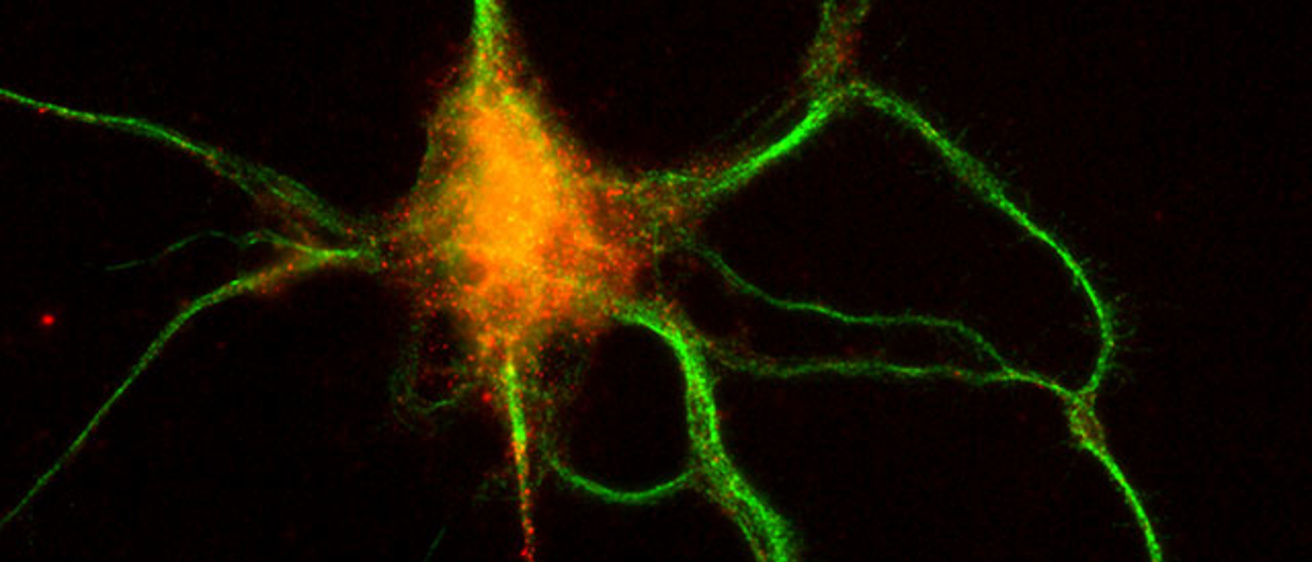Andrew Shepherd sees basic scientific research as something special on the path toward scientific discovery.
“To begin to fit all the pieces of the puzzle together, a lot of basic research like ours must happen first,” says Shepherd, a postdoctoral scholar in the Department of Pharmacology in the University of Iowa’s Carver College of Medicine. “I consider our lab fortunate that we were able to take these existing ideas and observations and fit them into a clinically relevant context. That’s the single most exciting aspect about basic research to me.”


Shepherd’s academic journey
Shepherd has grown as a scientist since joining Mohapatra’s laboratory in 2008.
“I’ve gained valuable insight into what setting up your own lab and research projects entails, rather than being ‘parachuted’ into an established lab and established projects,” Shepherd says. “It’s an experience that a lot of postdocs don’t necessarily get, and it wasn’t without moments of pressure and doubt, but I feel like that effort that we all made in those early years is now starting to bear fruit.”
The University of Iowa has been a great place for Shepherd to work.
“The fact that the Carver College of Medicine is so closely associated with the UI Hospitals and Clinics is a great advantage for researchers like us,” says Shepherd, whose appointment at the UI will end in 2014. “It’s invaluable in creating the kind of collaborative environment and translational projects that are vital for coming up with new ideas and making important discoveries.”
Shepherd became interested in basic research as an undergraduate at the University of Manchester (England).
“I always remember being particularly interested in those lecture topics that had a clear, direct relevance to human diseases, and what we could do to further our understanding and eventually develop improved treatments,” Shepherd says. “Sadly, I think all of us are familiar in one way or another with at least one person afflicted with a debilitating neurodegenerative condition.”
